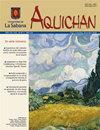乳腺癌在女性话语中的意义
Q3 Nursing
引用次数: 0
摘要
目的:揭示乳腺癌的意义。材料和方法:一项叙述性研究,使用滚雪球技术,选择了11名被诊断患有乳腺癌,疾病缓解的妇女(数据饱和),并居住在Florianópolis地区(巴西)。半结构化访谈于2018年8月至12月进行,并采用集体主体话语技术。从对叙事的分析中产生了四个中心思想;本文提出了“乳腺癌诊断意义”的中心理念,分为八个意义范畴。结果:中心思想包括以下几类:“面对诊断时的痛苦”、“对疾病和死亡的恐惧”、“对坏消息的专业无能”、“简化治疗的举措”、“对家庭成员的关心和感情是面对癌症的动力”、“与家庭成员的困难”、“来自家庭成员、专业人员和/或支持小组的支持”、以及“信仰和精神”。结论:论述表明,疾病诊断的意义与治疗需求、信仰、家庭成员、卫生团队和支持团体提供的支持以及家庭成员和专业人员面临的困难有关。这些结果应该意味着从诊断阶段到癌症缓解/生存后提供特定的护理。本文章由计算机程序翻译,如有差异,请以英文原文为准。
Meaning of Breast Cancer in Women’s Discourse
Objective: To reveal the meaning of breast cancer.
Materials and method: A narrative research study that selected, using the snowball technique, 11 women (data saturation) diagnosed with breast cancer, on disease remission, and living in the region of Florianópolis (Brazil). Semi-structured interviews were conducted between August and December 2018, and they were subjected to the Collective Subject Discourse technique. Four central ideas emerged from the analysis of the narratives; this article presents the central ideal called “Meaning of the breast cancer diagnosis”, which has eight sense categories.
Results: The central idea covers the following categories: “Suffering when facing the diagnosis”, “Fear of the disease and of death”, “Professional inability for bad news”, “Initiatives to streamline treatment”, “Concern and affection with the family members as a driving force to face cancer”, “Difficulties with the family members”, “Support from the family members, from the professionals and/or from the support group”, and “Faith and spirituality”.
Conclusions: The discourse reveals that the meaning of the disease diagnosis is linked to the need for treatment, to the support provided by faith, family members, the health team, and support groups, and to the difficulties faced with family members and professionals. These results should imply the provision of specific Nursing care from the diagnostic phase until after cancer remission/survival.
求助全文
通过发布文献求助,成功后即可免费获取论文全文。
去求助
来源期刊

Aquichan
NURSING-
CiteScore
1.10
自引率
0.00%
发文量
32
审稿时长
>12 weeks
期刊介绍:
Aquichan, a journal of medical and health sciences from the field of health sciences and, more specifically, nursing, publishes articles resulting from investigations from a point of view of epistemology, evidence-based practice, chronic care, promotion and prevention. The articles are for the academic and scientific community, both in Colombia and abroad.
The journal accepts original, previously unpublished papers in Spanish, English, and Portuguese, which are the product of a research or a review and which are not being evaluated by other scientific journals, either in print or electronic form.
 求助内容:
求助内容: 应助结果提醒方式:
应助结果提醒方式:


